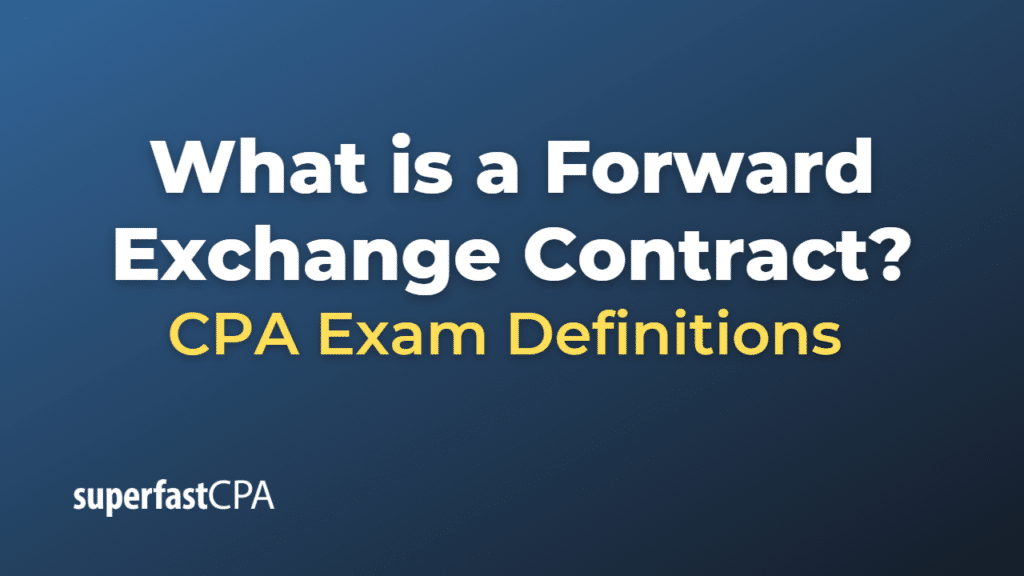Forward Exchange Contract
A forward exchange contract is a financial derivative used to hedge against foreign exchange (FX) risk. It is an agreement between two parties to buy or sell a specific amount of a foreign currency at a future date, for a predetermined exchange rate.
These contracts are useful for businesses or investors who wish to eliminate the uncertainty associated with fluctuating exchange rates. They can lock in an exchange rate today for a transaction that will occur in the future, protecting themselves against potential losses if the currency they need to buy appreciates in value.
The terms of a forward exchange contract are negotiated between the two parties and are not standardized. They are over-the-counter (OTC) instruments, which means they are traded directly between two parties rather than through an exchange.
It’s worth noting that while forward exchange contracts can effectively hedge against FX risk, they can also limit potential gains if the currency exchange rates move in the opposite direction than expected.
Example of a Forward Exchange Contract
Suppose a U.S.-based company, TechCorp, has entered into a contract to purchase components from a Japanese supplier for 100 million yen, with the payment due in three months.
However, TechCorp is concerned about the risk of the Japanese yen appreciating against the U.S. dollar in the next three months, which would make the purchase more expensive in dollar terms. To hedge this risk, TechCorp decides to enter into a forward exchange contract.
They approach their bank and agree to a three-month forward contract to buy 100 million yen. Let’s say the agreed forward exchange rate is 1 USD = 100 JPY. So, TechCorp knows they will have to pay 1 million USD for the necessary yen in three months, regardless of how the actual exchange rate might fluctuate in that time.
Three months later, a few scenarios could occur:
- If the exchange rate has moved against TechCorp (let’s say to 1 USD = 90 JPY), the company benefits from the forward contract because they effectively get a rate of 100 JPY per dollar instead of 90.
- If the exchange rate is unchanged, there is no financial impact from the forward contract. TechCorp still exchanges 1 million USD for the 100 million yen as agreed.
- If the exchange rate has moved in favor of TechCorp (say to 1 USD = 110 JPY), the company won’t benefit from the favorable movement. They still have to honor the forward contract and exchange at the originally agreed rate (100 JPY per dollar). However, they had no way of predicting this movement, and their aim was to limit risk, not speculate on currency movements.
This example illustrates how a forward exchange contract can be used to hedge against exchange rate risk. Please note that in reality, the arrangements might involve more complexity, and typically the contracts would be settled net (cash settlement of the difference) rather than requiring physical delivery of the currencies.













